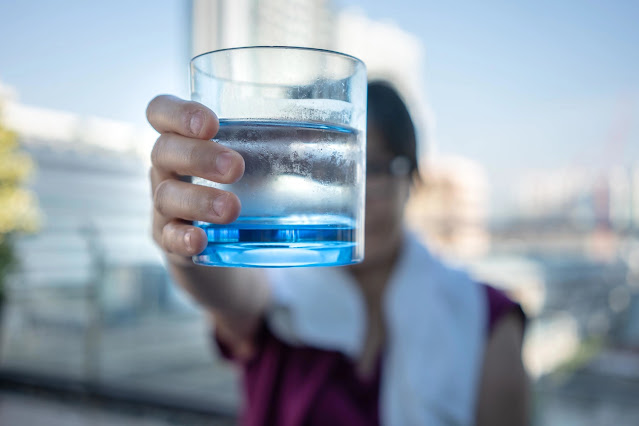#Hydration and Cellular Function#
Despite being often overlooked in daily life, water plays an irreplaceable role in many physiological and biological functions. From regulating body temperature to transporting nutrients and removing waste, water is fundamental to maintaining good health. This article explores the many benefits of water and answers the common question: "Can I drink seawater?"The most obvious and essential benefit of drinking water is hydration. The human body is composed of approximately 60% water, and this water is vital for maintaining cellular functions. Every cell in your body needs water to perform its functions, including nutrient absorption, energy production, and waste removal. **Blood Circulation:** Water is a major component of blood, which is responsible for transporting oxygen and nutrients to cells throughout the body. Proper hydration helps maintain blood volume and pressure, ensuring that oxygen reaches all the tissues that need it.**Cell Metabolism:** Water helps move nutrients and waste products in and out of cells, thus aiding in metabolism and other cellular processes. Dehydration can impair these functions, leading to fatigue, poor concentration, and a weakened immune system.
#Regulation of Body Temperature#
One of water's primary roles is to regulate body temperature through a process called thermoregulation. When your body overheats, the body sweats - this sweat is primarily water, which evaporates to help cool the body. On the other hand, water helps retain heat when you're cold, as it retains heat better than many other substances.**Thermal balance:** Water helps maintain a stable internal temperature, which is essential for normal bodily functions. Without proper hydration, the body may not be able to regulate temperature effectively, increasing the risk of heat stroke or hypothermia.
Water is essential for keeping joints lubricated, ensuring smooth movement and reducing the risk of injuries. The synovial fluid that cushions your joints is mostly water, and adequate hydration helps keep these fluids at optimal levels.**Joint Health:** Without adequate water intake, synovial fluid can thicken and become less effective at reducing friction between bones, leading to discomfort or even conditions like arthritis.
**Digestive Tract Function:** Water is also important for digestion. It helps nutrients and soluble fiber dissolve, allowing them to be absorbed more efficiently in the intestines. Proper hydration prevents constipation, as water softens stool and helps it pass through the colon.
#Toxin and Waste Elimination#

The kidneys filter waste products from the blood, and water helps remove these waste products from the body through urine. Drinking enough water helps prevent kidney stones, urinary tract infections (UTIs), and other urinary problems. **Urinary Health:** Water is also essential for maintaining a proper balance of salts and electrolytes in the body. Inadequate water intake can lead to dehydration, which makes the kidneys work harder to concentrate urine and can potentially lead to kidney damage or other problems.
Water is vital for maintaining healthy, youthful-looking skin. It hydrates skin cells, improving elasticity and reducing the appearance of fine lines and wrinkles.
**Skin complexion and texture:** Water helps maintain the skin's natural glow by flushing out toxins and supporting blood flow. This contributes to a healthier complexion, fewer blemishes and an overall more vibrant look.Dehydration can impair cognitive functions, leading to poor concentration, memory issues and difficulty thinking clearly. In fact, even mild dehydration can cause mood swings, irritability and fatigue.
**Mental Performance:** Staying hydrated supports brain function, helping you focus, think clearly, and maintain mental energy. Proper hydration improves short-term memory, alertness, and decision-making skills.While seawater is abundant and seems like it could be a potential source of hydration, drinking seawater is not safe and may actually be harmful.



.jpg)


Comments
Post a Comment